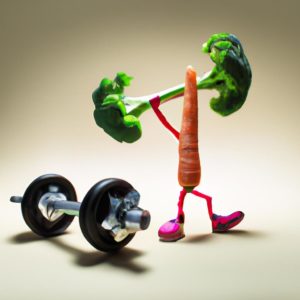Calcium is widely recognized as an essential mineral for maintaining your health and strength. Calcium absorption is crucial for strengthening weak legs and improving bone health. Calcium helps regulate the pH (acid balance) of your blood and nerve function.
Calcium is a more abundant mineral in your body than any other; nearly 99% of calcium is found in bone and teeth. The remaining 1% can be found in muscle, other tissues and fluid.
It is important to note that calcium deficiency can cause serious health problems. If calcium levels are not sufficient, bones can become weak, brittle or even soft. Calcium deficiency can lead to osteoporosis and rickets if it isn’t treated. Calcium deficiency can also cause memory loss, depression, muscle spasms, and numbness in different parts of the body, such as the feet, hands, and feet. It is important to change your lifestyle and diet in order to fix calcium deficiency.
1. Make sure you get enough Vitamin D.
Vitamin D is crucial in increasing calcium absorption in the body. Children who are not getting enough vitamin D can develop rickets if they don’t get enough. You can increase your Vitamin D intake by spending a few minutes in the sun each day. However, it is important to monitor this as excessive sunlight can cause skin cancer. Avoid direct sunlight in the morning and afternoon, but do not forget to apply sunscreen when you go outside.
Consuming Vitamin D-rich foods is another way to get enough Vitamin D. It is highly recommended to consume fortified milk or fortified dairy products. Other vitamins and nutrients can be purchased to increase calcium intake, such as boron and magnesium.
2. Stop drinking soda.
Soda can slow down your calcium absorption process. It is best to avoid soda. Drinking too many soda drinks can cause a spike in blood phosphate levels. Calcium intake is prevented by high levels of phosphates. You should also limit your intake of alcohol.
3. Avoid excessive caffeine.
It is clear that many people enjoy a cup or two of coffee to start their mornings. However, if you have calcium deficiency, you can’t drink any more coffee. Coffee contains caffeine, which can cause calcium to be effected by bones. You can still drink coffee, but not more than two cups per day. You can add some milk to your coffee to reduce the effects of caffeine. Green tea and other herbal teas can be substituted.
4. Reduce sodium intake.
Calcium can be zapped from bones by sodium intake. You can add spices and herbs to spice up your food, instead of adding salt. You should also avoid processed foods as they may contain high levels of sodium.
5. Calcium-rich foods should be eaten more often
You have many options for good calcium-rich foods that you can choose from. These foods include:
- Dairy products like cheese and yogurt
- Soybeans and other soy products
- Non-fat milk or skim milk
- Sardines
- Fortified cereals
- Dark leafy greens such as kale, spinach and collard greens
Other well-known calcium-fortified foods include rice milk, almond milk and soy milk.







